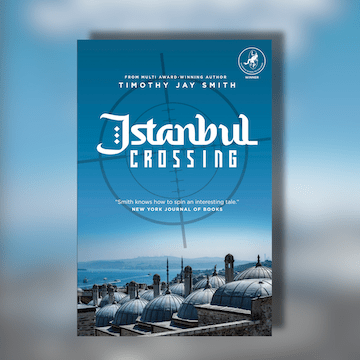Translated by Alice Menzies — Crime readers have to get used to time lags in English translations, but you suspect some devoted fans of Arne Dahl have decided to learn Swedish rather than wait for the UK publisher to catch up. To the Top of the Mountain is the third book in Dahl’s Intercrime series, though a total of 10 Intercrime novels have appeared in Sweden. He also started a new series of books, the Opcop quartet, in 2011. At least it means there’s plenty more Dahl to look forward to.
If readers of his latest novel have a nagging sense of familiarity, it might be from seeing the two-part Swedish TV adaptation on BBC4 last year. However, Arne Dahl (pen name of literary author Jan Arnald) is worth reading for the quality of his prose as much as the plot, and his authorial voice comes through strongly in this elegant translation.
In this instalment, the six officers of the National Criminal Police’s Special Unit for Violent Crimes of an International Nature – or Intercrime, to use its more snappy title – have been dispersed and their unit disbanded after a disastrous conclusion to their previous investigation. It takes the first third of this book (published in Sweden in 2000) to bring them back together when a number of disparate cases reveal a major threat to Swedish democracy.
Paul Hjelm and Kerstin Holm have romantic history, which they tiptoe around while facing up to demotion to the violent crimes division in Stockholm. But one case seems more intriguing than the brawls and domestics. When Hammarby finish bottom of the league, one of their fans takes out his frustration on an outsider in a bar with a beer glass. The investigation into this killing results in further questions about those who fled the scene, including a policeman. When a listening device is discovered, it’s clear that one group of people in the bar was being spied on.
Meanwhile, Arto Soderstedt and Viggo Norlander are working in CID when called to investigate an explosion at Kumla prison. A drug dealer has been blown up in his cell: a message for his boss Rajko Nedic, the Serbian-Swede crime lord who employs violent henchmen involved in ethnic cleansing during the break-up of Yugoslavia. As for the rest of the former Intercrime officers: Jorge Chavez, as energetic and ambitious as ever, is also in CID, while Gunnar Nyberg, a former bodybuilder known as Sweden’s biggest policeman, is investigating the growing threat of online paedophiles – important but horrific work.
When a massacre takes place in a Stockholm suburb that reveals connections between these cases, the Intercrime team members are reunited under the control of Jan-Olov Hultin, who’s brought out of retirement. The individual crimes now reveal a bigger threat to Sweden – and the police, in particular – involving paramilitary neo-Nazis, while paedophiles, organised crime and football supporters also add to the overworked police’s investigation during the Midsummer’s Eve holiday.
Like Henning Mankell, Dahl is an intelligent writer who combines gripping plots with a clear-sighted analysis of the changes in Swedish society, including the rise of the far right in this liberal country and suspicions about the 1986 murder of prime minister Olof Palme. Some passages are pure social commentary, which serve to illuminate Dahl’s story.
With narrative perspectives switching between the Intercrime members, it’s sometimes hard to keep track of the personal lives of these characters. But Dahl’s writing is always sharp and the influence of the classical world (the title is from Ovid) enriches his story. It’s clear why these books have been adapted for TV – there’s no shortage of tense action sequences or snappy dialogue.
It has to be said that the paedophile element to the investigation may prove too much for some readers. There’s also the problem of technology dating this novel, first published in 2000. The internet is very much a new and worrying development, while phones that can surf the web are described in almost science fictional terms by one character. If you can overlook the passage of 15 years, though, this is another fine example in the rich tradition of Swedish crime novels that dare to address social issues.
Read our review of Arne Dahl’s Bad Blood here.
Harvill Secker
Print/Kindle/iBook
£5.69
CFL Rating: 4 Stars










